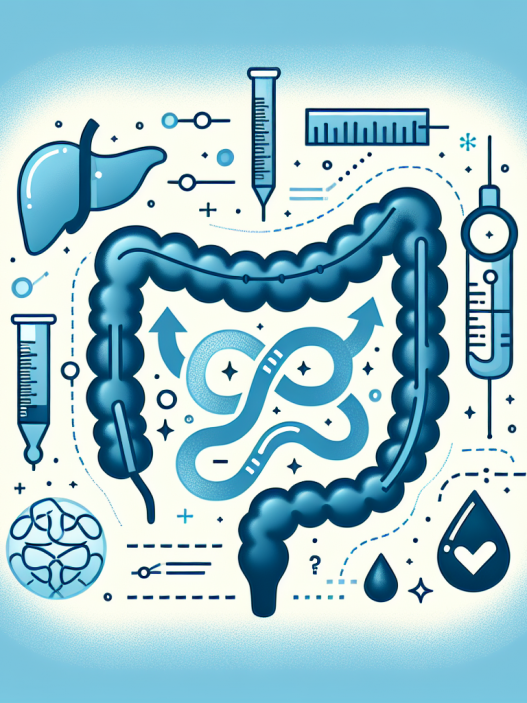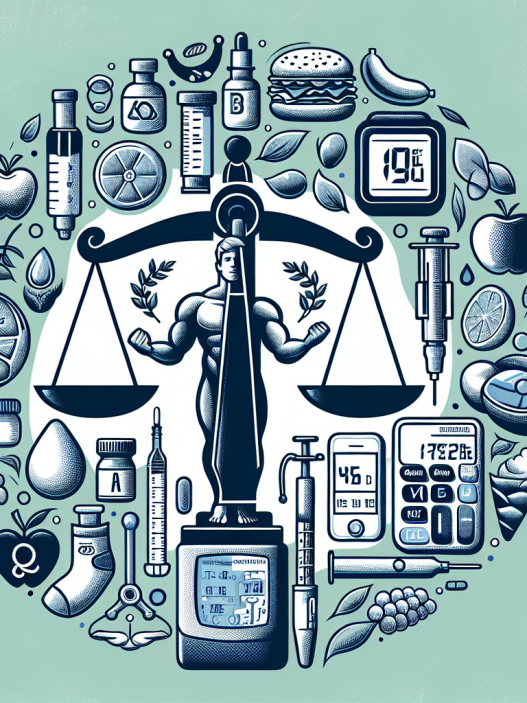[ad_1]
Managing Type 2 diabetes effectively requires a multifaceted approach, one that includes regular check-ups as an essential component. These appointments are crucial not only for monitoring blood sugar levels but also for assessing overall health, adjusting treatment plans, and preventing complications. Understanding the significance of these assessments can empower individuals with Type 2 diabetes to take charge of their health and potentially lead to better outcomes.
The Role of Regular Check-Ups in Type 2 Diabetes Management
Regular check-ups are vital for those living with Type 2 diabetes, providing a structured opportunity to assess and optimize management strategies. During these appointments, a healthcare provider evaluates key markers such as blood glucose levels, cholesterol, and blood pressure, which are critical in minimizing the risks associated with diabetes. The holistic view gained during these visits enables a tailored approach to treatment, ensuring that all aspects of a patient’s health are considered.
Furthermore, regular check-ups create a space for education and discussion. Patients can address any concerns, ask questions about their medication or lifestyle changes, and receive timely advice from healthcare professionals. This engagement is essential for fostering a proactive attitude towards diabetes management. Each interaction with healthcare providers serves as a platform for reinforcing the importance of self-care behaviors and staying informed about the latest in diabetes health.
Understanding the Benefits of Comprehensive Diabetes Assessments
The importance of regular check-ups extends beyond just monitoring blood sugar levels. A comprehensive diabetes assessment can reveal underlying issues, such as the development of cardiovascular diseases, kidney function abnormalities, or neuropathy. Early detection of these complications is fundamental in preventing serious health issues, which can otherwise lead to significant morbidity or even premature mortality.
During these assessments, essential tests are typically conducted, including A1C tests that measure long-term blood glucose control, lipid profiles that assess cholesterol levels, and blood pressure monitoring. The results enable healthcare providers to make informed decisions regarding education, lifestyle modifications, and potential medication adjustments, optimizing diabetes management strategies.
Moreover, these appointments often prompt discussions about weight management, dietary changes, and increased physical activity, all of which are integral to managing Type 2 diabetes effectively. The consistency of monitoring through regular check-ups helps create accountability for both the patient and the provider, leading to a more collaborative healthcare experience.
Regular Health Screenings: A Key to Preventing Complications
The risk of complications from Type 2 diabetes is alarmingly high, yet many can be prevented through early detection and proactive management. Regular check-ups provide the opportunity for timely screenings that can identify early signs of complications such as retinopathy, nephropathy, or peripheral artery disease. According to the American Diabetes Association, individuals with diabetes should undergo comprehensive eye examinations every year, as changes in vision can often be an early indicator of severe complications.
In addition to vision screenings, dental examinations are paramount as individuals with diabetes are at increased risk of gum disease. Engaging in proactive discussions with healthcare providers about the importance of routine dental care can help lower these risks. The connection between oral health and diabetes is often underestimated, but a comprehensive approach considers dental assessments as part of routine diabetes management.
Lastly, mental health screenings should not be overlooked. Living with a chronic condition such as Type 2 diabetes can lead to challenges like anxiety and depression. Regular check-ups are an opportunity to assess these mental health aspects, enabling healthcare providers to connect patients with counseling or support services as needed. By addressing all facets of health during these appointments, individuals can achieve a holistic approach to diabetes management.
The Importance of Medication Reviews During Regular Check-Ups
Patients with Type 2 diabetes often undergo treatment plans involving multiple medications, and it’s crucial that these are reviewed regularly to ensure they remain effective. Medication reviews during check-ups allow healthcare professionals to assess adherence to treatment and identify any side effects or drug interactions that may arise over time. These conversations can lead to modifying dosages or switching medications to enhance overall management.
Additionally, as diabetes management guidelines evolve, patients may benefit from new therapies or approaches that their healthcare provider can recommend during check-ups. For example, advancements in diabetes medications or insulin delivery systems can offer improved outcomes with fewer side effects. Understanding the latest research can empower patients to participate actively in their healthcare decisions and explore new options that align with their lifestyle and health status.
Moreover, these medication discussions serve as a reminder for patients to maintain open lines of communication with their healthcare providers. It is essential for patients to report any barriers to medication adherence, such as cost or side effects, enabling providers to address these issues promptly. Effective communication ensures that diabetes management is collaborative, personalized, and responsive to the patient’s changing needs.
Enhancing Patient Engagement Through Regular Check-Ups
Regular check-ups foster a strong patient-provider relationship, enhancing patient engagement, which is a cornerstone of effective diabetes management. When individuals maintain routine appointments, they feel more connected and empowered in their health journey. This relationship creates an environment where patients feel comfortable discussing their struggles and seek help when needed, which is paramount for improving compliance with treatment regimens.
Patient education is a vital component of these encounters. Regular discussions about nutrition, exercise, and self-monitoring techniques can help patients develop the skills they need for better self-management. Empowering patients with knowledge helps them understand their condition, recognize when to seek medical advice, and actively participate in their care plan, which can lead to improved health outcomes.
In addition to knowledge, check-ups can also encourage lifestyle changes through goal-setting. Healthcare providers can assist patients in setting realistic, achievable goals tailored to their specific circumstances. Regularly revisiting these goals during their appointments allows for adjustment and continual motivation, making it easier for patients to sustain changes that positively affect their diabetes.
The Future of Diabetes Care and the Role of Technology in Regular Check-Ups
The landscape of healthcare is changing rapidly, with advancements in technology playing a pivotal role in diabetes management. Telemedicine has emerged as a powerful tool for enhancing regular check-ups, allowing patients easy access to healthcare providers from the comfort of their homes. This increased accessibility can significantly improve adherence to routine appointments, especially for those living in remote areas or undergoing mobility issues.
Moreover, technology like continuous glucose monitors and health tracking apps can provide real-time data to healthcare providers, enriching the traditional check-up process. Imagine coming into an appointment with a comprehensive overview of your daily glucose levels, dietary habits, and physical activity patterns readily available. This data can lead to more informed decisions regarding treatment plans and a personalized health strategy that aligns with the patient’s daily lifestyle.
As technology continues to advance, the integration of artificial intelligence and machine learning in diabetes management can anticipate patient needs. Automated alerts for low blood sugar or reminders for medication refills can support patients in their journey, ensuring they stay on track between routine check-ups and remain proactive in managing their condition.
Conclusion
In conclusion, regular check-ups are indispensable in the management of Type 2 diabetes. They aid in monitoring health indicators, enhancing patient engagement, preventing complications, and adapting treatment strategies. By committing to routine appointments and actively participating in their care, individuals with Type 2 diabetes can optimize their health outcomes, leading to a higher quality of life. As the future unfolds, integrating technology will only continue to refine and enhance the check-up process, ensuring a better, more proactive experience for patients. Staying informed and proactive in diabetes management is crucial, and regular check-ups are the pathway to a healthier future.
By recognizing the importance of regular check-ups and actively engaging in their health management, patients can mitigate the impacts of Type 2 diabetes and lead fulfilling lives. Embrace the opportunity that each check-up presents; it is not merely an appointment, but a vital step toward better health and well-being.
[ad_2]






















